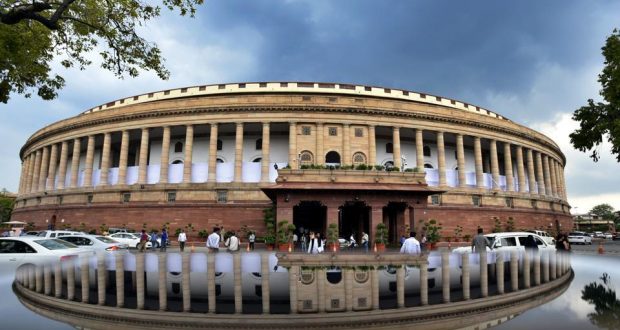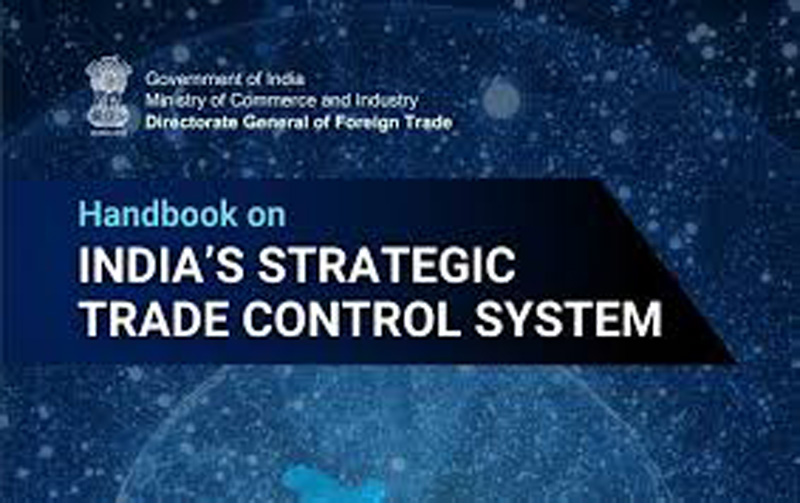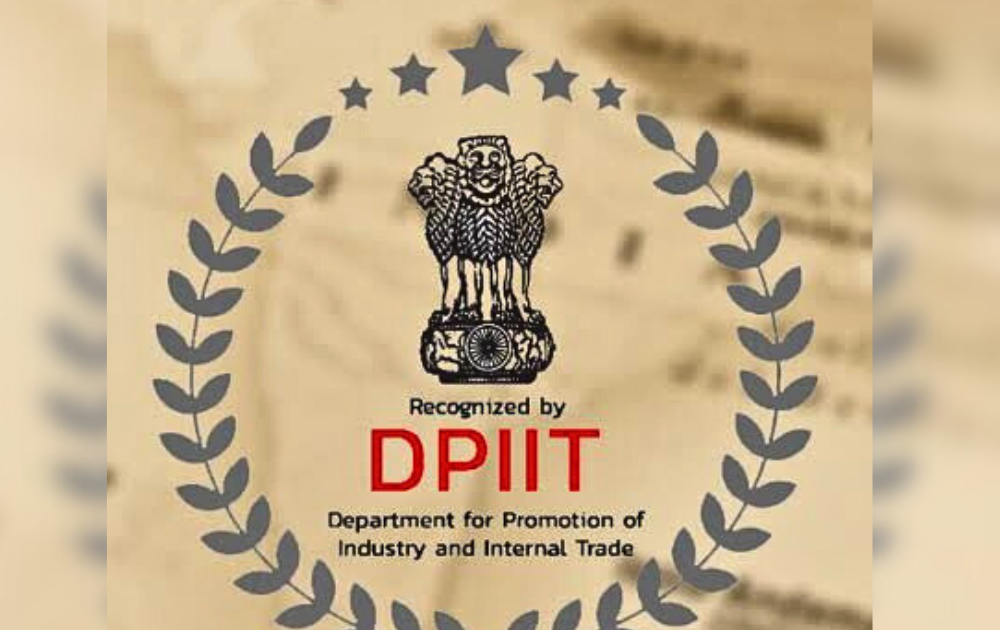Make in India is an initiative which was launched on September 25, 2014, to facilitate investment, foster innovation, building best in class infrastructure, and making India a hub for manufacturing, design, and innovation. The development of a robust manufacturing sector continues to be a key priority of the Indian Government. It was one of the first ‘Vocal for Local’ initiatives that exposed India’s manufacturing domain to the world. The sector has the potential to not only take economic growth to a higher trajectory but also to provide employment to a large pool of our young labour force.

Make in India initiative has made significant achievements and presently focuses on 27 sectors under Make in India 2.0. Department for Promotion of Industry and Internal Trade is coordinating action plans for manufacturing sectors, while Department of Commerce is coordinating service sectors.
The Government of India is making continuous efforts under Investment Facilitation for implementation of Make in India action plans to identify potential investors. Support is being provided to Indian Missions abroad and State Governments for organising events, summits, road-shows and other promotional activities to attract investment in the country under the Make in India banner. Investment Outreach activities are being carried out for enhancing International co-operation for promoting FDI and improve Ease of Doing Business in the country.
India has registered its highest ever annual FDI Inflow of US $74.39 billion (provisional figure) during the last financial year 2019-20 as compared to US $ 45.15 billion in 2014-2015. In the last six financial years (2014-20), India has received FDI inflow worth US$ 358.30 billion which is 53 percent of the FDI reported in the last 20 years (US$ 681.87 billion).
Steps taken to improve Ease of Doing Business include simplification and rationalization of existing processes. As a result of the measures taken to improve the country’s investment climate, India jumped to 63rd place in World Bank’s Ease of Doing Business ranking as per World Bank’s Doing Business Report (DBR) 2020. This is driven by reforms in the areas of Starting a Business, Paying Taxes, Trading Across Borders, and Resolving Insolvency.
Recently, Government has taken various steps in addition to ongoing schemes to boost domestic and foreign investments in India. These include the National Infrastructure Pipeline, Reduction in Corporate Tax, easing liquidity problems of NBFCs and Banks, policy measures to boost domestic manufacturing. Government of India has also promoted domestic manufacturing of goods through public procurement orders, Phased Manufacturing Programme (PMP), Schemes for Production Linked Incentives of various Ministries.
Further, with a view to support, facilitate and provide investor friendly ecosystem to investors investing in India, the Union Cabinet on 03rd June, 2020 has approved constitution of an Empowered Group of Secretaries (EGoS), and also Project Development Cells (PDCs) in all concerned Ministries/ Departments to fast-track investments in coordination between the Central Government and State Governments, and thereby grow the pipeline of investible projects in India to increase domestic investments and FDI inflow.
The activities under the Make in India initiative are being undertaken by several Central Government Ministries/ Departments and various State Governments. Further, Ministries formulate action plans, programmes, schemes and policies for the sectors being dealt by them. This Department does not maintain information on such formulations by the line ministries.

Startup India:
Startup India is a flagship initiative of the Government of India, intended to build a strong eco-system for nurturing innovation and Startups in the country that will drive sustainable economic growth and generate large scale employment opportunities. Salient features of the Startup India Initiative are at Annexure-I.
There is no direct fund allocation from DPIIT to States/UTs under Startup India initiative. However, Government of India has established a Fund of Funds for Startups (FFS) with corpus of Rs. 10,000 crores, to meet the funding needs of startups. DPIIT is the monitoring agency and Small Industries Development Bank of India (SIDBI) is the operating agency for FFS. The total corpus of Rs. 10,000 crores is envisaged to be provided over the 14th and 15th Finance Commission cycles based on progress of the scheme and availability of funds. The achievements under Startup India initiative are at Annexure-II.
ANNEXURE –I
- Under the Startup India Action Plan, startups that meet the definition as prescribed under G.S.R. notification 127 (E) dated 19.02.2019 are eligible to apply for recognition under the program. The Startups have to provide support documents, at the time of application. Eligibility Criteria for Startup Recognition are as under:-
- The Startup should be incorporated as a private limited company or registered as a partnership firm or a limited liability partnership.
- Turnover should be less than INR 100 Crores in any of the previous financial years.
- An entity shall be considered as a startup up to 10 years from the date of its incorporation.
- The Startup should be working towards innovation/ improvement of existing products, services and processes and should have the potential to generate employment/ create wealth. An entity formed by splitting up or reconstruction of an existing business shall not be considered a “Startup”.
Startups can apply and get recognized by Department of Promotion of Industry and Internal Trade and avail the benefits mentioned below:-
- Fast tracking and rebate on applications for Intellectual Property: The patent application of startups is fast-tracked for examination and disposal. Facilitators are responsible for providing general advisory on different IPRs, and information on protecting and promoting IPRs in other countries. Central Government bears the entire fees of the facilitators for any number of patents, trademark or designs, and startups only bear the cost of the statutory fees payable. Startups are provided with an 80% rebate in filing of patents and 50% rebate in filling of trademark vis-a-vis other companies.
- Access to Rs. 10,000 Crore Fund of Funds: To provide equity funding support for development and growth of innovation driven enterprises, the government has set aside a corpus fund of INR 10,000 Cr managed by SIDBI. The fund is in the nature of Fund of Funds, which means that the government participates in the capital of SEBI registered Venture Funds, who invest twice the amount in startups. The flow of funds is Government > SIDBI > Venture Capitals >Startups.
- Self-Certification under Labour and Environmental laws:Startups are allowed to self-certify their compliance under 6 Labour and 3 Environment laws for a period of 3 to 5 years from the date of incorporation.
- Income Tax Exemption for 3 years:Startups incorporated on or after 1st April 2016 can apply for income tax exemption. The recognised startups that are granted an Inter-Ministerial Board Certificate are exempted from income-tax for a period of 3 consecutive years out of 10 years since incorporation.
- Exemption for the Purpose Of Clause‑(Viib) of Subsection‑(2) of Section 56 of the Act: A DPIIT recognized startup is eligible for exemption from the provisions of section 56(2)(viib) of the Income Tax Act.
- Government Public Procurement eligibility: Government of India has authorised its ministries, departments and public sector undertakings to relax norms in all public procurements. Startups are entitled to avail exemption on prior turnover, prior experience and earnest money deposit. DPIIT recognised startups can now get listed as sellers on the Government of India’s largest e-procurement portal – Government e-Marketplace (GeM).
- Faster Exit for Startups: Ministry of Corporate Affairs has notified Startups as ‘fast track firms’ enabling them to wind up operations within 90 days vis-a-vis 180 days for other companies.
ANNEXURE –II
Details of achievements under Startup India Initiative
- Intellectual Property Rights (IPR) benefits:
- Startups are eligible for 80% rebate in patent filing fees and 50% on trademark filing fees. Additionally, Startups are also provided the facility of expedited examination of patent applications to reduce the time taken in granting patents.
- 510 patent facilitators and 392 trademark facilitators have been empanelled, as of November 2020, under this scheme to provide free-of-charge services to Startups.
- As of November 2020,
- 5020 patent applications have been filed.
- Expedited examination for patent applications filed by Startups – 1170; of these 459 Patents granted.
- Total number of Trademark applications filed – 12,264.
- Easing Public Procurement
- The requirement of prior turnover and prior experience has been relaxed to encourage startups to participate in tenders. Further, startups have been exempted from the requirement of earnest money deposit.
- ‘GeMStartup Runway’ has been launched for startups to sell products and services to Government. As of 4th January 2021, 7,929 DPIIT recognized startups have registered on Government e-Marketplace (GeM).
- As of 4th January 2021, 53,226 orders from public entities have been placed to startups with the value of orders worth Rs. 2,279 crores.
- Additionally, Startups can now register and participate in all public orders on Central Public Procurement Portal and get exemptions on prior experience, prior turnover and earnest money deposit requirements.
- GeM has relaxed the requirement of approved Trademark certificate for DPIIT Recognized Startups . An application for trademark will be sufficient.
- Self-Certification under Labour and Environmental laws
- Startups recognised under Startup India initiative can self-certify their compliance against the 6 labour laws and 3 environmental laws.
- 27 states and UTs have implemented the process of self- certification to startups under 6 labour laws. 9 States (Haryana, Madhya Pradesh, Maharashtra, Rajasthan, Gujarat, Uttar Pradesh, Punjab, Uttarakhand, and Delhi) have integrated their portals with ShramSuvidha Portal. Overall, 169 DPIIT recognized Startups have availed the benefits of self-certification.
- Tax Exemption to Startups for 3 years
- The provisions of section 80-IAC of the Income Tax Act provide for a deduction of an amount equal to 100% of the profits and gains derived from an eligible business by an eligible start-up for 3 consecutive assessment years out of 7 years, at the option of the assessee, subject to certain conditions. The Finance Act, 2020 provides for an amendment to section 80-IAC of the Income Tax Act so as to provide that the deduction under the said section 80-IAC shall be available to an eligible start-up for a period of 3 consecutive assessment years out of 10 years beginning from the year in which it is incorporated. This amendment will take effect from 1st April 2021 and will, accordingly, apply in relation to the assessment year 2021-22 and subsequent assessment years.
- To avail these benefits, a Startup must get a Certificate of Eligibility from the Inter-Ministerial Board (IMB). 329 startups have been granted income tax exemptions till December 2020.
- Tax Exemption on Investments above Fair Market Value
- DPIIT recognized startups are exempt from tax under Section 56(2)(viib) of the Income Tax Act when such a Startup receives any consideration for issue of shares which exceeds the Fair Market Value of such shares. The startup has to file a duly signed declaration in Form 2 to DPIIT {as per notification G.S.R. 127 (E)} to claim the exemption from the provisions of Section 56(2) (viib) of the Income Tax Act. As of 3rd February 2021, with regard to declarations received from entities, furnished in Form 2, intimation regarding receipt of declaration in Form 2 has been mailed in the cases of 3612 entities.
- Faster Exit for Startups
Ministry of Corporate Affairs has notified Startups as “Fast track firms” enabling them to wind up operations within 90 days vis-a-vis 180 days for other companies.
- Fund of Funds for Startups
- Fund of Funds for Startups (FFS) with a total corpus of Rs 10,000 crore was established with contribution spread over the 14th and 15th Finance Commission cycle based on progress of implementation. Startup Fund of Funds is operational and is managed by SIDBI.
- As on date, an amount Rs.1461.29 crore stands released to SIDBI, out of which Rs.500crore was released in 2015-16; Rs.100 crore was released in 2016-17; Rs.431.30 crore released in 2019-20 and Rs.429.99 crore was released in 2020-21.
- As of 31st January 2021, SIDBI has committed Rs. 4376.95 crore to 62 SEBI registered Alternative Investment Funds (AIFs). These funds have raised a corpus fund of Rs. 31,598 crore and Rs. 5089.55 crore have been invested into 391 startups.
- 39 regulatory reforms have been undertaken since January 2016 for enabling small businesses or Startups across the country.
- National Startup Awards
- The Department for Promotion of Industry and Internal Trade (DPIIT) conceived the National Startup Awards to recognize and reward outstanding Startups and ecosystem enablers that are building innovative products or solutions and scalable enterprises, with high potential of employment generation or wealth creation, demonstrating measurable social impact. The measure of success was not only financial gains for investors, but also contribution to social good. The first edition of the Awards invited applications across 12 sectors, which were further sub-classified into a total of 35 categories. These 12 sectors were Agriculture, Education, Enterprise Technology, Energy, Finance, Food, Health, Industry 4.0, Space, Security, Tourism, categories and Urban Services. In addition to these categories, those startups were recognised that are creating an impact in rural areas, are women-led, or founded in an academic campus.
- The applications for the ‘National Startup Awards 2020’ were hosted on the Startup India portal – www.startupindia.gov. in – through which a total of 1,641 applications were received from Startups across 23 States and 4 Union Territories. 41 ecosystem enablers (incubators and accelerators) also participated in the Awards.
- Awards for Winners
- Startups
- INR 5 lakh to the winning startup in each of the 38 Categories
- Opportunity to pitch in front of relevant line-ministry/ department/ corporates to all finalist startups (that qualified to Phase 4 of evaluation)
- Priority for participation in national and international events to all finalist startups
- Ecosystem Enablers
- INR 15 Lakh to one winning incubator and one accelerator each
- The Results of the National Startup Awards 2020 were released by Hon’ble Minister of Railways and Commerce & Industry, Shri PiyushGoyal, on 6th of October 2020 at the National Media Centre, New Delhi. The virtual felicitation ceremony was held in the august presence of Hon’ble Minister of State for Commerce & Industry, Shri SomParkash.
- HandholdingSupport: DPIIT has now embarked on a new journey with all of the 192 NSA finalists (including the winners), handholding them reach their next stage of growth. As committed during NSA felicitation ceremony, DPIIT is supporting the startups across 8 key tracks viz. Investor Connect, Mentorship, Corporate Connect, Government Connect, International Market Access, Regulatory Support, Benefits under Startup India initiative, and Startup India Showcase.
- Startup India Showcase
Startup India Showcase is an online discovery platform for the most promising startups of the country chosen through various DPIIT and Startup India programs exhibited in a form of virtual profiles. The startups showcased on the platform have distinctly emerged as the best in their fields. These innovations have been handpicked by experts and have gone through multiple rounds of screening and evaluation. These innovations span across various cutting-edge sectors such as Fintech, Entreprise Tech, Social Impact, HealthTech, EdTech, among others. These startups are solving critical problems and have shown exceptional innovation in their respective sectors. Ecosystem stakeholders have nurtured and supported these startups, thereby validating their presence on this platform.
- Startup India Yatra
DPIIT has also made efforts to engage with the Startup ecosystem through extensive outreach via bootcamps, social media, print and digital platforms. The Startup India Yatra is an initiative that travels to Tier 2 and Tier 3 cities of India to search for entrepreneurial talent and help develop Startup ecosystem. Day long bootcamps were conducted which included awareness workshops, idea validation and pitching sessions. Startup Yatra has been conducted across 23 States in 236 districts impacting 78346 aspiring entrepreneurs. A total of 1,424 incubation offers have been given to the startups as a result of this initiative.
- Recognition
There has been an increase in the number of DPIIT recognized startups in the recent years. The increasing trend can be seen from the below breakup:
| Calendar Year | Recognized Startups |
| 2016 | 504 |
| 2017 | 5420 |
| 2018 | 8946 |
| 2019 | 11683 |
| 2020 | 14778 |
| 2021* | 1402 |
(*data till 27th January 2021)
- Startup India Portal
- Startup India provides free resources to startups to help them scale faster, better, and stronger. The portal acts as one stop platform for the stakeholders of startup ecosystem with aspiring entrepreneurs, startups, corporates, accelerators, incubators, government departments having profile on the platform.
- 4,49,978 users have registered on the website, as on 31stDecember 2020.
- More than 446 Innovation Hunts and programs have been hosted on the Startup India portal by various government departments and corporates.
- Learning & Development Program
- To guide budding entrepreneurs through the journey of their startup venture, a free 4-week program is offered on the key areas of starting up by more than 40 top founders of India. Upon completion of the course, an acknowledgement certificate for the learnings in the program is also provided.
- The Learning and Development course has been accessed by 2,80,000 users.
This information was given by the Minister of State in the Ministry of Commerce and Industry, Shri SomParkash, in a written reply in the Lok Sabha today.
 Indian Industry Plus A Pratisrutiplus Suppliment
Indian Industry Plus A Pratisrutiplus Suppliment

















